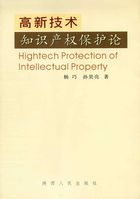In the works of Grotius and Puffendorf, an elaborate attempt was made to determine the laws of nature in regard to man's political and social conditions, and apply the same to the examination and rectification of national and international laws.This was thought by many to be a more profitable and promising theme than the perpetual discussion of the nature of being and universals.This school had undoubtedly its influence in Scotland, where Carmichael, in 1718, edited and annotated Puffendorf, {27} and where Hutcheson, and Hume, and A.Smith, and Ferguson, and D.Stewart, combined juridical and political with moral inquiries, and became the most influential writers of the century on all questions of what has since been called social science.
But a stronger and deeper current was setting in about the same time,-a determination to have the experimental mode of investigation applied to every department of knowledge.
This method had already been applied to physical science with brilliant results.And now there was a strong desire felt to have the new manner adopted in the investigation of the human mind.In 1670, John Locke and five or six friends are conversing in his chamber in Oxford on a knotty topic, and quickly they find themselves at a stand; and it occurred to Locke that, before entering " on inquiries of that nature, it was necessary to examine our own abilities, and see what objects our understandings were or were not fitted to deal with." He pondered and wrote on this subject for twenty years, at the close of which (in 1690) he published his immortal " Essay on the Human Understanding." In this work he would banish for ever those innate ideas which had offered such obstacles to the progress of thought; and, by an inquiry into the actual operations of the human mind, he would trace the ways in which mankind attain ideas and knowledge, and settle the bounds imposed on the human understanding.Locke's Essay was hailed with acclamation by all who were wearied of the old scholastic abstractions and distinctions, and who had caught the new spirit that was abroad.
Still Locke's Essay was not allowed to take possession of the thinking minds of the country without a vigorous opposition.Locke was met in his own day by Stillingfleet, the Bishop of Worcester, who argued resolutely that the view given in the Essay of our idea of substance was not sufficiently deep to enable it to bear up the great truths of religion, especially the doctrine of the Trinity.The great Leibnitz severely blamed Locke for overlooking necessary truth, and reviewed his work, 'book by book and chapter by chapter, in his "Nouveaux Essais sur l'Entendement Humain; " which, however, in consequence of Locke's death taking place in the mean time, was not published for many years after.It was felt by many otherwise {28} favorable to the new spirit, that Locke had not laid a sufficiently deep foundation for morality in his account of our idea of virtue, which he derived from mere sensations of pleasure and pain, with the law of God superadded in utter inconsistency with his theory.There were still in England adherents of the great English moralists, More and Cudworth, who had opposed Hobbes with learning and ability; and these maintained that there was need of deeper principles than those laid down by Locke to oppose the all-devouring pantheistic fatalism of Spinoza on the one hand, and the rising materialistic spirit on the other.
In the early part of the eighteenth century, there appeared several works which were not conceived at least wholly in the spirit of Locke.I do not refer to such works as Norris's "Ideal World," in which we have an able defence of the Aristotelian analysis of reasoning, and an exposition of Platonism, more ideal far than that presented in Plato's own dialectic; nor to Collier's "Clavis," "being a demonstration of the non-existence or impossibility of an external world:" I allude to works which left a far deeper impression on their age.Samuel Clarke, with vast erudition and great logical power, was establishing, in a mathematical manner, the existence and attributes of God, giving virtue a place among the eternal relations of things perceived by reason, and defending the doctrine of human freedom and responsibility against those who were reducing men to the condition of brutes or machines.Berkeley did adopt the theory of Locke as to the mind being percipient only of ideas, but the view which he took of human knowledge was very different; for while Locke, consistently or inconsistently, was a sober realist, Berkeley labored to show that there was no substantial reality except spirit, and thought in this way to arrest the swelling tide of materialism and scepticism.A more accurate thinker than either, Bishop Butler, was establishing the supremacy of conscience, and showing that there was a moral government in the world; and that revealed religion was suited to the constitution of the mind, and to the position in which man is placed.
It was while philosophic thought was in this state that the Scottish Philosophy sprang up.The Scottish metaphysicians largely imbibed the spirit of Locke; all of them speak of him {29} with profound respect; and they never differ from him without expressing a regret or offering an apology.Still the Scottish school never adopted the full theory of Locke; on the contrary, they opposed it in some of its most essential points; and this while they never gave in to the mathematical method of Clarke, and while they opposed the ingenuities of Berkeley.Hutcheson, the founder of the Scottish school, was a rather earlier author than Butler, to whom therefore he was not indebted for the peculiarities of his method and system.But there was a writer to whom both Butler and Hutcheson, and the early Scottish school generally, were under deeper obligation than to any other author, or all other authors, and who deserves in consequence a more special notice.














